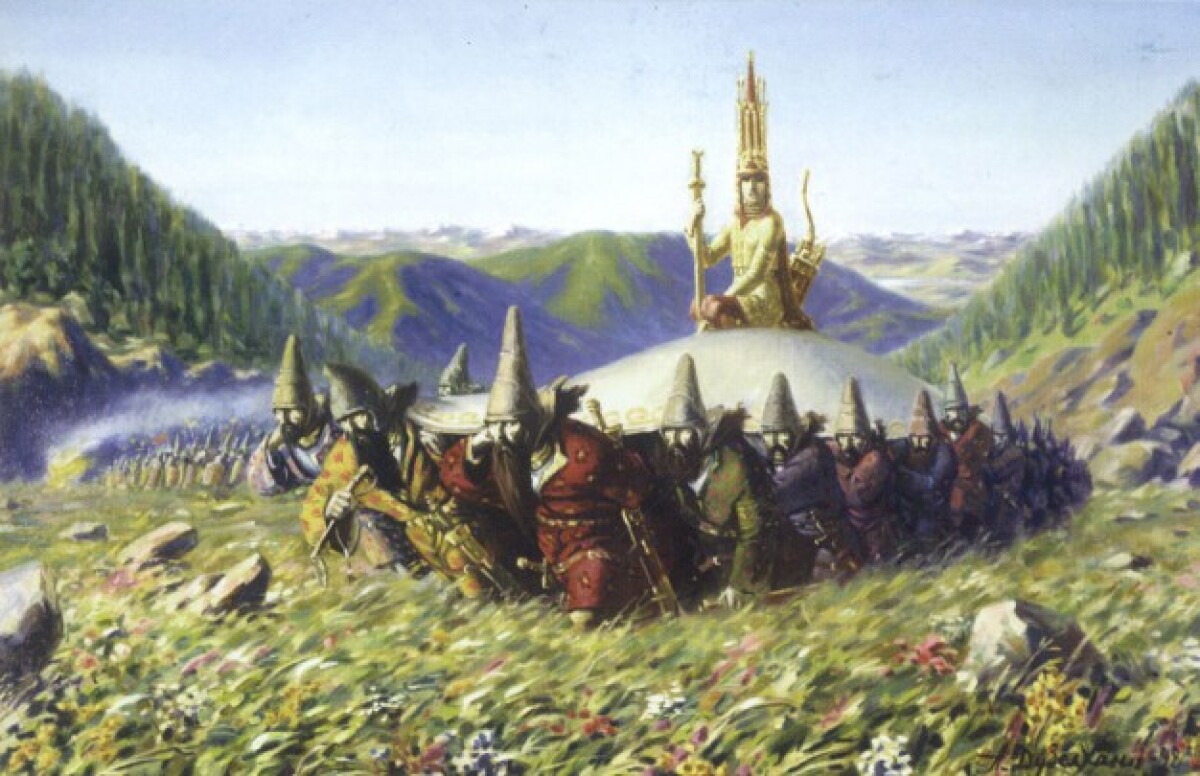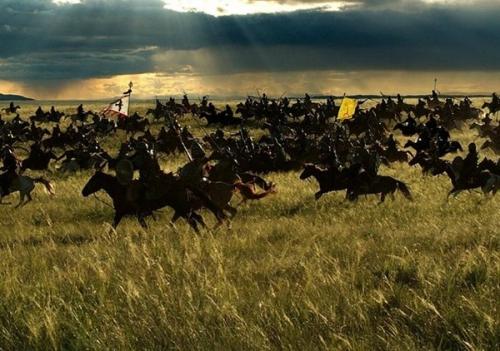
A detailed study is a requirement of time, because since independence there have been dramatic changes in concepts, attitudes and approaches to the study of history of Kazakhstan with breakaway from Eurocentric and formational approach to civilizational. As a result of changing the methodology of study many facts of socio-political history of Kazakhstan received a new interpretation.
It is also necessary to take a fresh look into military history of Kazakhstan, to free from the old «attitudes» and dogmas, which were reserved for nomadic people. For instance, nearly all textbooks have sayings that became axiomatic, that militant steppe tribes led predatory war for take...

In this regard, it is fair to mention that military history of nomads cannot be considered in the gap from socio-political, economic processes, not understanding value-conscious priorities for their worldview.
People who go to war for the sake of plunder and prey cannot be demiurgic! They cannot leave monuments of high culture, writing and literature after themselves. Sakas, Huns, Turks and other steppe people left the greatest monuments of culture, which became the jewel in the treasure house of human history.
Is it possible to imagine that Sakas won the great conquerors of world Cyrus and Darius only because of their greed and avarice? And what led the ancient tribes of Xiongnu to fight with China? They are also described as predatory tribes in textbooks.
We cannot ignore the fact that during studying and writing history of Xiongnu and Huns we always operate with Chinese written sources and data of ancient authors, who expressed interests of their ruling dynasties and described them as their enemies and barbarians. So there is a need to redefine and properly highlight the reasons that induced Xiongnu to conduct raids.
The reason was forcible — the economic blockade of China. China always used trade as a lever of political pressure against the Xiongnu (such practice is prevalent in the world today). Xiongnu were forced to conduct the raids to urge Han Empire to reopen the caravan route and start trade relations. An old English proverb says, if the goods do not cross a boundary, soldiers do. Another important historical detail: these attacks were mutual. Han China also carried raids deep into steppe from time to time to «appease» nomads, everyone, who was met on the way by Chinese troops was extremely extirpated.
Considering these factors, it is necessary to analyze in detail all political and social causes of the conflict during study and description of the military relationship between Xiongnu and China.
Turkic period in the history of Kazakhstan is one of the main stages in the ethnic history of Kazakh nation. Almost all steppe tribes from Manchuria in the East to the Kerch Strait in the west, from the upper reaches of the Yenisei river in the north and to the headwaters of the Amu Darya in the south were united into a single state — the Great Turkic Khanate.
Military history of the Turkic period also requires careful study. As it was mentioned above, knowledge of the value-conscious priorities of the worldview of the Turks will help to get answers to many questions of military, political and cultural history. For instance, the main aim of the campaigns of Turks is emerged in the monuments of the runic letters in honor of Kultegin — «Four corners were all enemies; speaking with an army, they conquered people lived at four corners and forced them all to peace.. »
As it is seen from the text of the monument, greed for gain did not push Turks to campaign, but completely different goals and motives, ideas forming state encouraged them to do so. There is a myth about bloodthirstiness of steppe people in the military history. This statement is probably originated in connection with high military organization of military and military arts of nomads, as reported by the written sources and their success in war. The superiority in military affairs allowed Turks and Mongols to establish their authority and control in the vast expanses of Eurasia.
It should be noted that in antiquity and the middle ages of non-militant people could not exist, as people or a state, which had no coordinated military organization, army, simply became the prey of the strong opponent. One who said: «People who do not want to feed their own army will feed foreign one» is right.
The following quotation of the Great Russian orientalist V.V.Bartold which he gave analyzing Turkic runic monuments about bloodthirstiness and beastliness among the nomads arouses interest: «... In spite of the warlike character and military spirit that ingrained inscriptions, we see an amazing lack of the element that is commonly called beastliness. If we compare the inscriptions of the Assyrian kings the conquerors of the civilized nations with them, we see that the element of violence or, so to speak, the enjoyment of cruelty takes more place in cultural people than khan... We do not find anywhere that khan was talking about huge sacrifices, shed blood, etc.»
This can be related to the Mongols too. As L.N.Gumilyov approved affirmation that Genghis Khan destroyed all the cities in Central Asia was just a myth, contrived by Muslim court historians.
Thus, in our view, the study of military history of ancient and medieval Kazakhstan remains as one of the most important problems in national historical science. Researchers should take into considerations all the subtleties and nuances that are associated with steppe customary law, traditions and laws that define those values, which give motivation to the nomads on military performances.
A.K.Zhumadil, Candidate of Historical Sciences, Al.Farabi KazNU
